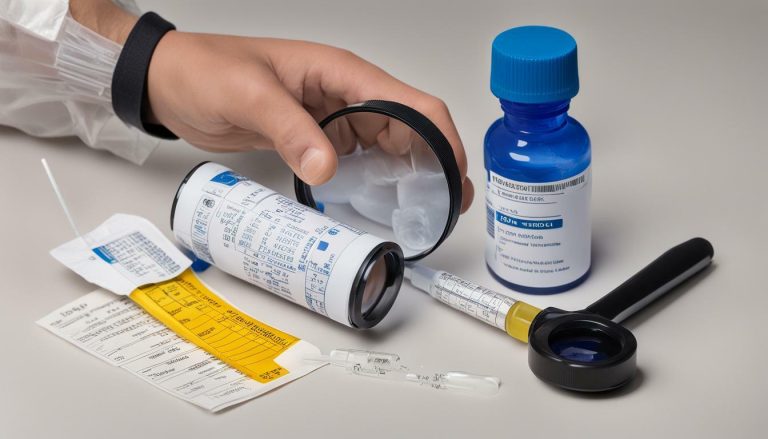Unveiling the Truth: How Long Can a Cat Live on Steroids?
Steroid usage in cats is a controversial topic. While steroids can be beneficial for certain medical conditions, there are also potential risks and side effects to consider. In this article, we will explore the impact of steroids on a cat’s lifespan and overall health. We will delve into the potential effects steroids can have on cats and whether they can help prolong their lives.
It is important to note that the lifespan of a cat on steroids can vary depending on various factors, including the cat’s overall health, the dosage of steroids prescribed, and the duration of usage. Consulting with a veterinarian is crucial to determine the most appropriate treatment plan for a cat’s individual needs.
Key Takeaways
- Steroid usage in cats can have potential benefits, but also risks and side effects to consider.
- The lifespan of a cat on steroids can vary depending on various factors.
- Consulting with a veterinarian is crucial to determine the most appropriate treatment plan for a cat’s individual needs.
Understanding Steroids and Their Effects on Cats
Steroids are commonly used in veterinary medicine to treat a variety of conditions in cats, including allergies, inflammatory bowel disease, and certain types of cancer. They work by suppressing the immune system and reducing inflammation.
While steroids can be effective in treating these conditions, they also come with potential risks and side effects. Long-term steroid use can lead to weight gain, increased thirst and urination, and a weakened immune system, among other issues.
It is important for cat owners to be aware of these risks and to work closely with their veterinarian to monitor their cat’s health while on steroids. Regular blood work and check-ups can help detect any potential problems early on.
Effects of Steroids on Cat Lifespan
There is limited research on the effects of steroids on a cat’s lifespan. While some studies suggest that steroids may help improve quality of life and prolong survival in cats with certain medical conditions, others have found no significant impact on lifespan.
Additionally, the overall health of the cat can play a significant role in their lifespan while on steroids. Cats with pre-existing health issues or a weakened immune system may be more susceptible to the negative effects of steroid use.
Safely Using Steroids in Cats
When used properly and under the guidance of a veterinarian, steroids can be a valuable tool in treating certain medical conditions in cats. It is important to follow dosage instructions carefully and to never abruptly stop steroid treatment.
If you have concerns about steroid use in your cat, talk to your veterinarian about alternative treatment options and potential risks and benefits.
Can Steroids Prolong a Cat’s Lifespan?
Steroids are commonly used in veterinary medicine for cats to treat a variety of medical conditions, such as inflammatory diseases, allergies, and cancer. While steroids have potential benefits, there is limited scientific evidence supporting the notion that steroids can prolong a cat’s lifespan.
The effect of steroids on a cat’s lifespan can vary depending on several factors. These include the reason for steroid use, the dosage and duration of treatment, and the cat’s overall health status. Steroid use in cats with certain medical conditions, such as lymphoma or severe asthma, may improve their quality of life and potentially prolong their lifespan.
However, prolonged steroid use may cause various adverse effects that can shorten a cat’s lifespan. Steroids can suppress a cat’s immune system, making them more susceptible to infections and illnesses. They can also cause weight gain, diabetes, and hypertension, which can all contribute to a shortened lifespan.
Despite the potential risks associated with prolonged steroid use, there are certain cases where they may be necessary to improve a cat’s quality of life. Cat owners should consult with their veterinarian to determine the appropriate treatment plan for their individual cat.
Steroids and Cat Longevity: Factors to Consider
Several factors can impact a cat’s longevity while on steroids. One of the most crucial factors is the dosage and duration of treatment. Higher doses and prolonged periods of steroid use are associated with a higher risk of adverse effects that can shorten a cat’s lifespan.
The reason for steroid use is also important to consider. Cats with certain medical conditions, such as lymphoma or severe asthma, may benefit from steroid treatment, which can improve their quality of life and potentially prolong their lifespan. However, steroid treatment for less severe conditions, such as allergies or skin irritations, may not necessarily improve a cat’s longevity.
Finally, a cat’s overall health status is also critical. Cats with preexisting health conditions or compromised immune systems may be more susceptible to the adverse effects of steroids, which can shorten their lifespan. On the other hand, cats in good overall health may be better able to tolerate steroid treatment and may have a higher chance of a longer lifespan.
Overall, while steroids may have potential benefits for certain medical conditions in cats, their impact on a cat’s lifespan is dependent on various factors. Cat owners should work closely with their veterinarian to determine the most appropriate treatment plan for their individual cat.
Potential Risks and Side Effects of Steroid Use in Cats
While steroids may have potential benefits for certain medical conditions in cats, it is important to consider the potential risks and side effects that may arise from long-term steroid use.
One of the most significant risks of steroid use in cats is the suppression of the immune system. This can leave cats vulnerable to infections and diseases that they may otherwise be able to fight off. Additionally, steroids can cause increased thirst and appetite, which can lead to weight gain and other health issues.
Cats on long-term steroid treatment may also be at an increased risk for developing diabetes, urinary tract infections, and skin infections. In some cases, steroids can cause gastrointestinal issues such as vomiting and diarrhea.
It is important to note that not all cats will experience these side effects, and the severity of side effects can vary depending on the cat’s individual health and the dosage of steroids prescribed. However, cat owners should be aware of these potential risks before considering steroid treatment, and should work closely with their veterinarian to monitor their cat’s health while on steroids.
Alternative Options for Improving Cat Health and Longevity
While steroids can have benefits for cats with certain medical conditions, there are alternative approaches that can help improve their overall health and increase their lifespan without relying solely on medication. Here are a few options:
Dietary Changes
Feeding your cat a healthy and balanced diet is one of the most important things you can do to improve their overall health and longevity. Ensure that their food provides all the essential nutrients and vitamins they need to thrive. Consult with your veterinarian to determine the best diet plan for your cat and their specific needs.
Regular Exercise
Just like humans, cats benefit from regular exercise. Playing, chasing toys, and climbing are all great ways to keep your cat active and healthy. Additionally, exercise can help prevent obesity and related health issues that can shorten a cat’s lifespan.
Routine Vet Care
Regular checkups with your veterinarian can help detect health issues early on and prevent them from becoming more serious. Ensure that your cat receives all recommended vaccinations and screenings, and follow through with any necessary treatment plans.
Managing Stress
Stress can have a negative impact on a cat’s health and wellbeing. To help manage stress, provide your cat with a comfortable and secure living environment. Make sure they have access to quiet areas where they can relax and retreat when needed.
Supplements and Remedies
There are many natural supplements and remedies available that can help support your cat’s health. Consult with your veterinarian to determine which ones may be appropriate for your cat’s individual needs.
Conclusion
Prolonging a cat’s lifespan with steroids may not always be the best option. There are alternative approaches that can help improve their health and increase their life expectancy without relying solely on medication. Consult with your veterinarian to develop a comprehensive plan that fits your cat’s unique needs.
Conclusion
In conclusion, it is difficult to determine exactly how long a cat can live on steroids as there are many factors that can impact their lifespan. While steroids may have potential benefits for certain medical conditions in cats, it is important to consider the potential risks and side effects. Consulting with a veterinarian is crucial to determine the most appropriate treatment plan for a cat’s individual needs.
Some studies suggest that steroids may help prolong a cat’s life in certain situations, such as when they are suffering from cancer or autoimmune diseases. However, the dosage and duration of usage must be carefully monitored to minimize any potential harm to the cat’s health.
The Effects of Steroids on Cat Lifespan
The effects of steroids on a cat’s lifespan can vary depending on the cat’s overall health and the specific medical condition being treated. Some cats may experience improved quality of life and extended longevity, while others may suffer from health issues or a shortened lifespan as a result of steroid use.
It is important for cat owners to be aware of the potential risks and side effects associated with steroid usage in cats, including increased risk of infection, diabetes, and gastrointestinal issues. Routine vet care and proper nutrition and exercise can also contribute to a cat’s overall well-being and potentially extend their lifespan without relying solely on steroids.
In summary, while steroids may have potential benefits for certain medical conditions in cats, it is important to weigh the potential risks and side effects before considering steroid treatment. Consulting with a veterinarian and exploring alternative approaches to improving a cat’s health and extending their lifespan is recommended.







